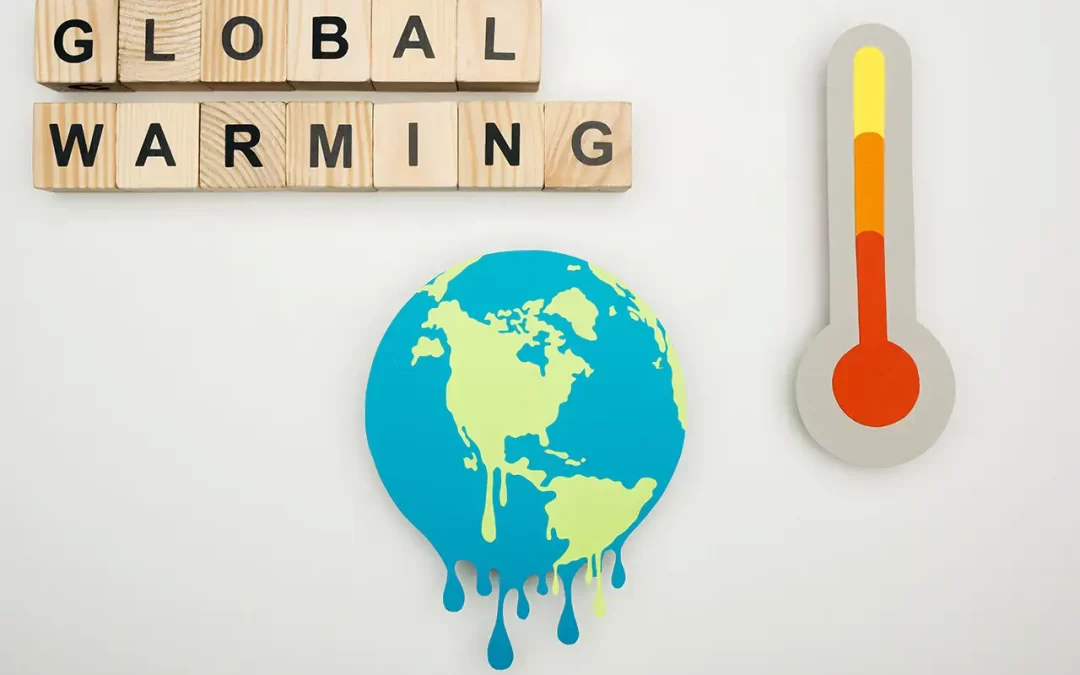Global warming is a defining issue of our time, one that poses significant threats to our environment, economies, and societies. As we delve into the complexities of global warming, it's essential to understand its causes, effects, and the urgent need for comprehensive action to mitigate its impacts.
The Science of Global Warming
Global warming refers to the long-term rise in Earth's average surface temperature, primarily due to human activities, especially the emission of greenhouse gases (GHGs) like carbon dioxide, methane, and nitrous oxide. These gases trap heat in the atmosphere, creating a ‘greenhouse effect' that leads to increased temperatures.
Causes of Global Warming
- Fossil Fuel Consumption: The burning of coal, oil, and natural gas for energy is the primary source of CO2 emissions, contributing to the majority of the greenhouse effect.
- Deforestation: Trees absorb CO2, but widespread deforestation for agriculture and urbanization reduces this capacity, increasing the amount of CO2 in the atmosphere.
- Agriculture: Methane, a potent greenhouse gas, is released by livestock and rice paddies, while nitrous oxide emissions result from fertilizer use.
- Industrial Processes: Manufacturing industries release a variety of greenhouse gases, including fluorinated gases, which have a much higher warming potential than CO2.
The Impact of Global Warming
Global warming has profound effects on the planet, influencing climate patterns, ecosystems, and human livelihoods.
- Extreme Weather Events: The increase in global temperatures is linked to a rise in the frequency and severity of extreme weather events, such as hurricanes, floods, droughts, and heatwaves.
- Melting Ice Caps and Rising Sea Levels: The warming of the planet has led to the melting of ice caps and glaciers, contributing to rising sea levels and threatening coastal communities.
- Biodiversity Loss: The changing climate affects wildlife habitats, leading to shifts in species distribution and contributing to the extinction of some species.
- Economic Impacts: The adverse effects of global warming on agriculture, water resources, and infrastructure result in significant economic losses and pose challenges to sustainable development.
Mitigating Global Warming: Strategies and Solutions
Addressing global warming requires concerted efforts at the international, national, and local levels. The solutions involve reducing greenhouse gas emissions, enhancing carbon sinks, and adapting to the inevitable changes.
Reducing Emissions
- Transition to Renewable Energy: Shifting from fossil fuels to renewable energy sources, such as solar, wind, and hydroelectric power, is crucial to reducing CO2 emissions.
- Energy Efficiency: Improving energy efficiency in buildings, transportation, and industries can significantly lower emissions.
- Sustainable Transportation: Promoting electric vehicles, improving public transportation, and encouraging biking and walking can reduce emissions from the transportation sector.
Enhancing Carbon Sinks
- Reforestation and Afforestation: Planting trees and restoring forests can absorb CO2 from the atmosphere, acting as effective carbon sinks.
- Soil Management: Practices like no-till agriculture, cover cropping, and organic farming enhance soil carbon sequestration.
- Wetland Restoration: Protecting and restoring wetlands can sequester carbon and provide other ecosystem benefits.

Adaptation Measures
- Building Resilient Infrastructure: Developing infrastructure that can withstand extreme weather events is essential for adaptation.
- Water Management: Efficient water use and the development of drought-resistant crops can help communities adapt to changing precipitation patterns.
- Coastal Protection: Implementing measures like seawalls, mangrove restoration, and managed retreat can protect coastal areas from rising sea levels.
The Role of Policy and International Cooperation
Effective policy frameworks and international cooperation are crucial for addressing global warming. The Paris Agreement, adopted in 2015, aims to limit global warming to well below 2°C above pre-industrial levels, with efforts to limit the increase to 1.5°C. Achieving these targets requires nations to commit to ambitious greenhouse gas reduction goals and to cooperate on technology transfer, financing, and capacity-building efforts.
Final Thoughts
Global warming is an urgent challenge that demands immediate and sustained action. By understanding its causes and effects, we can implement strategies and solutions to mitigate its impacts and build a more sustainable future. It is a collective responsibility, requiring the participation of governments, businesses, communities, and individuals worldwide. The path forward is clear: we must reduce greenhouse gas emissions, enhance carbon sinks, and adapt to the changes that are already underway. Through innovation, collaboration, and commitment, we can address global warming and secure a healthier planet for future generations.

